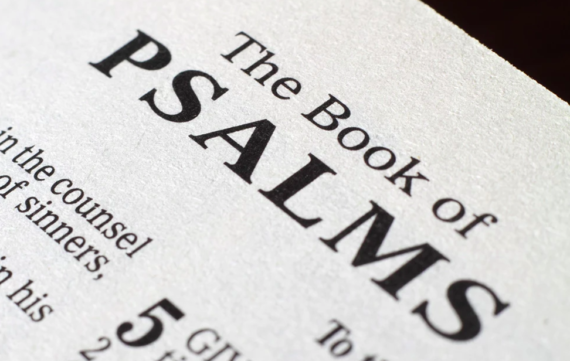One of the most depressing things that can happen is to get no response from a friend. This psalm opens with the writer pleading with God for a response.
The psalm appears to be from a time after Solomon, but well before the exile. At this point, the nation’s existence is not threatened by Babylon. Instead, the nations mentioned as a threat (6-7) are nations that had ceased to be a threat about 100 years before the Babylonian exile. The nations named here outnumbered and surrounded Israel on all sides.
The goal of these nations is to wipe Israel out and divide up its land.






“They say, ‘Come, let us wipe them out as a nation; let the name of Israel be remembered no more!’” (4) This is not just an attack on Israel but is in effect a conspiracy against the Lord (5). In calling on God for action, the people appeal for action based on two things.
Past actions
They appeal to God on the basis of his past actions (9-12). Of all the incidents that could be mentioned, only two, both from the Judges, are used. Verses 9-10 refer to Judges 4-5, and the deliverance through Deborah and Jael. Verse 11 refers to Judges 6-8, and the deliverance through Gideon.
Notice that these incidents have two things in common. In both cases, the people of God were incredibly outnumbered. And, in both cases the deliverance comes through unexpected persons: two women in the first case, a previously unknown person from a small clan in the second.
Desire that God be praised
The writer appeals for help in the hope that action now will bring God praise (16-18). It might cause some to repent (16). But even if that does not happen, it will cause people to know the reality of the Lord (Jehovah) (17-18).
As we face a situation where we feel threatened and surrounded, we should learn a couple of lessons from this psalm. First, we also ought to look to the history of God’s action in forming our plea. Being outnumbered and in need of leadership is nothing new for the people of God.
The examples from the Judges, used here, are hardly the only ones that could be used. Often, God’s people have faced insurmountable odds. He can deliver by few as easily as by many. The means and timing of deliverance may be highly unexpected. Who would have expected Jael, a non-Israelite woman, to deliver by means of a hammer and a tent peg?
In Jehosaphat’s day (a time often suggested for this psalm), the Lord used the quarrelling among the opposing parties (2 Chron 20:22-23) to deliver his people. On another occasion God used a young boy with five smooth stones.
The central action of the whole Bible, and of our faith, involves impossible odds and is as unexpected as can be.
Our appeal to God ought not to be primarily on the basis of our own comfort, but on the basis of his ultimate glory. The glorification of God is a basis for appeal in the Old Testament. On this side of the cross, one would think, it should be even more the basis of our thinking.
So, what we have here is a lesson in prayer. Our prayer life gets into trouble because we do not know the past action of God well enough to appeal to it. Our prayers are also hindered because we are not as God-focused as we ought to be. These are not problems that will be fixed easily or quickly. We need continual rededication.

